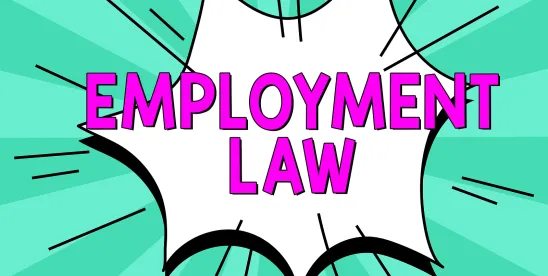As we look ahead to 2025, several important labor and employment law changes, planned and potential, are on the horizon. With President Trump set to return to the Oval Office on January 20, 2025, labor and employment law priorities at the federal level are expected to change significantly. Meanwhile, state legislatures remain active in enacting new laws that will impact the labor and employment law landscape for manufacturers. Below are a few key issues likely to impact manufacturers in 2025.
Minimum Wage for Non-Exempt Employees and Salary Threshold for Exempt Employees
While President Biden called for an increase to the federal minimum wage (currently $7.25 per hour) to $15 per hour during his presidency—that did not occur; rather, the minimum wage rate has remained unchanged since 2009. During President-elect Trump’s recent campaign, he signaled an openness to raising the federal minimum wage. However, any forthcoming increase will likely be substantially less than the Biden administration’s goal. Similarly, it is unlikely that the incoming administration will seek to revive the Biden administration’s increased “white collar” overtime exemption salary threshold, which a federal judge recently struck down. Nonetheless, manufacturers should remain current on federal and state minimum wage rates and salary thresholds.
Independent Contractor v. Employee Classification Enforcement
It is possible that the incoming administration may undo the Biden administration’s efforts to make it more difficult for manufacturers to classify workers as independent contractors, thereby simplifying wage and hour compliance for manufacturers under the Fair Labor Standards Act (FLSA). Further, the Trump administration may not prioritize this issue from an enforcement perspective. Regardless, manufacturers should continue to ensure compliance with more stringent state and local laws and guidance regarding worker classification.
Status of Equal Employment Opportunity and Diversity, Equity, Inclusion, & Belonging (DEIB) Programs and Policies
As seen during Trump’s first presidency, the Equal Employment Opportunity Commission (EEOC) under the incoming administration may aim at governmental and corporate diversity, equity, inclusion, and belonging (DEIB) initiatives in employment, focusing on equality compared to equity. Some entities are preemptively rolling back their DEIB programs and practices regarding recruiting, hiring, promotions, and similar efforts in anticipation of the new administration’s position. The Trump administration may also change protections for LGBTQ+ workers. At the state and local levels, it is expected that there will be a continued expansion of protected statutes. Manufacturers should be aware of these developments and ensure that their handbooks and policies comply with the state and local laws where their employees are working.
Workers’ Right to Organize and the National Labor Relations Board (NLRB)
Under the incoming Trump administration, the National Labor Relations Board (NLRB) may revert to more employer-friendly policies aimed at ensuring companies have rights regarding union organizing and similar activities, as seen during the first Trump administration. We also anticipate that the incoming General Counsel of the NLRB will rescind the memoranda issued by the current NLRB General Counsel, which implemented a pro-labor policy by expanding the scope of available remedies for unfair labor practices and restricting permissible non-compete agreements, among other key efforts to support union-organizing activity. The new NLRB may return to using more balanced standards and rulings when analyzing employer policies and confidentiality and non-disparagement provisions. Whether unionized or union-free, manufacturers may be impacted by these changes at the NLRB and beyond and should be aware of these developments.
Artificial Intelligence (AI)
While manufacturers continue to turn towards artificial intelligence (AI) and algorithm-based technologies for recruiting, hiring, and other employment needs, there may be developments in legislation at the state and federal levels. At the federal level, it is possible that the incoming administration could approach the issue of AI from a self-governance perspective, meaning refraining from legislating around the use of AI in employment and, instead, relying on employers to monitor their use of AI in recruiting, hiring, etc. AI tools could be a key focus for state and local legislatures in 2025. Manufacturers should ensure that their deployment and use of AI tools in employment comply with federal, state, and local laws.
Non-Compete Legislation
The Federal Trade Commission’s (FTC) final rule banning non-compete agreements did not go into effect as planned in 2024, and the FTC will likely abandon its efforts to revive the final rule once the incoming administration takes office. We do not anticipate further legislative or regulatory efforts at the federal level during the second Trump administration. However, at the state level, we expect to see more states and localities enact laws banning or restricting the scope of non-compete agreements, including based on position and salary, thereby challenging manufacturer efforts to protect their business interests and proprietary information and defend against unfair competition.



 />i
/>i
